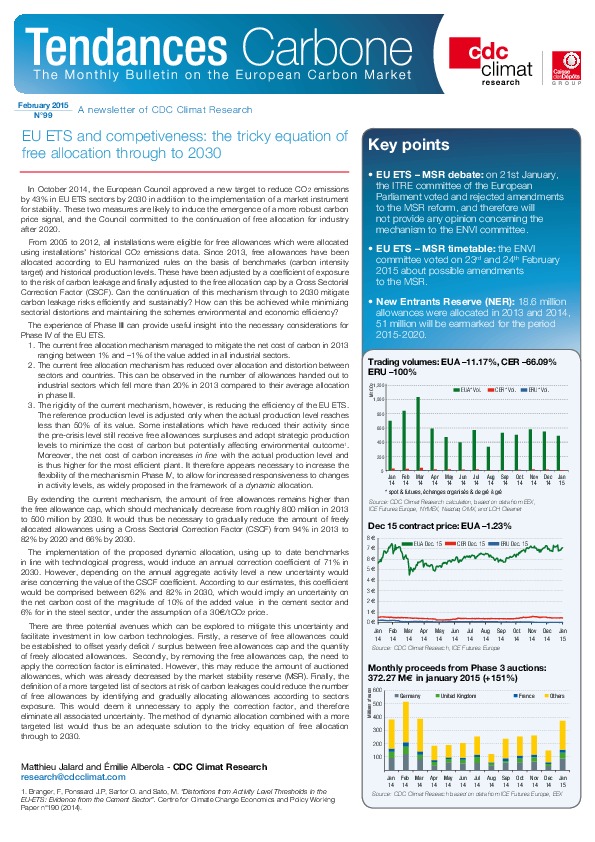EU ETS and competiveness: the tricky equation of free allocation through to 2030
![]() EU ETS – MSR debate: on 21st January, the ITRE committee of the European Parliament voted and rejected amendments to the MSR reform, and therefore will not provide any opinion concerning the mechanism to the ENVI committee.
EU ETS – MSR debate: on 21st January, the ITRE committee of the European Parliament voted and rejected amendments to the MSR reform, and therefore will not provide any opinion concerning the mechanism to the ENVI committee.
![]() EU ETS – MSR timetable: the ENVI committee voted on 23rd and 24th February 2015 about possible amendments to the MSR.
EU ETS – MSR timetable: the ENVI committee voted on 23rd and 24th February 2015 about possible amendments to the MSR.
![]() New Entrants Reserve (NER): 18.6 million allowances were allocated in 2013 and 2014, 51 million will be earmarked for the period 2015-2020.
New Entrants Reserve (NER): 18.6 million allowances were allocated in 2013 and 2014, 51 million will be earmarked for the period 2015-2020.
